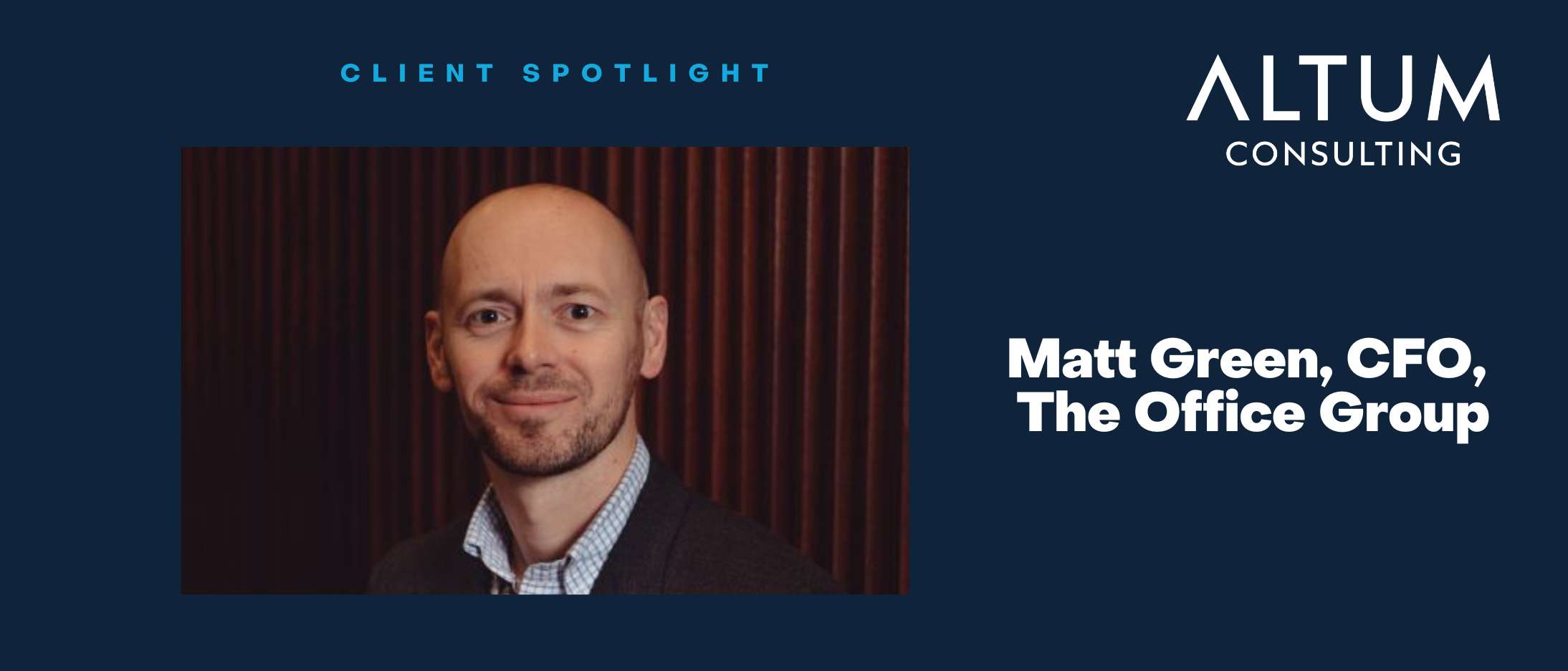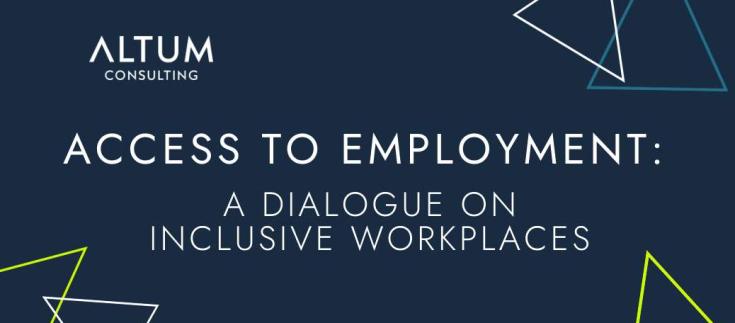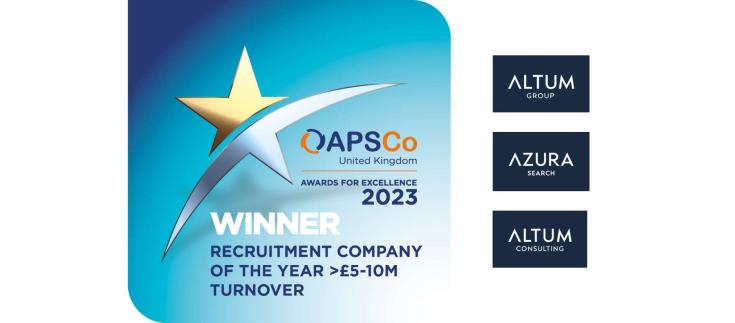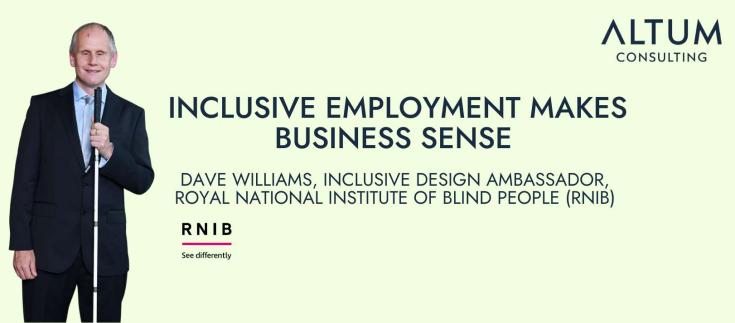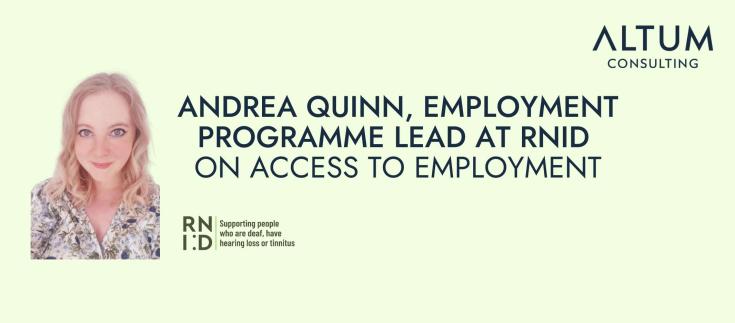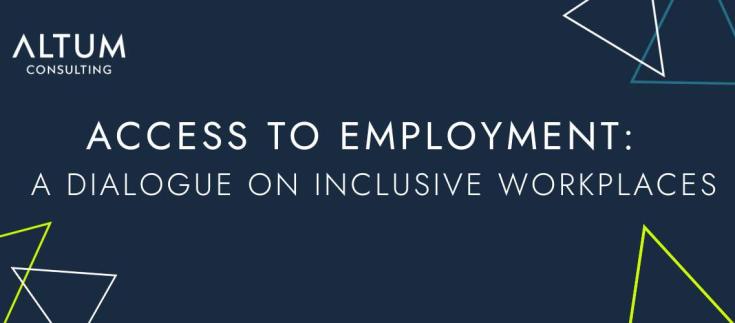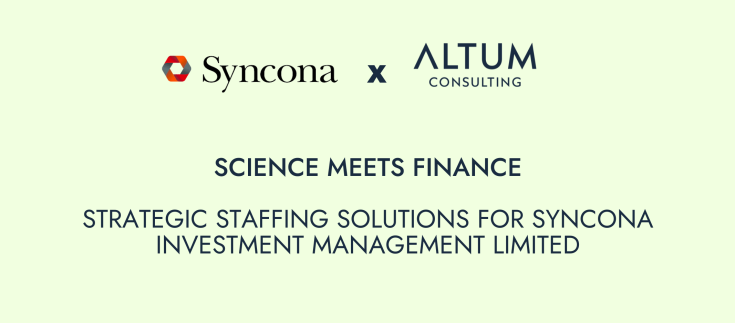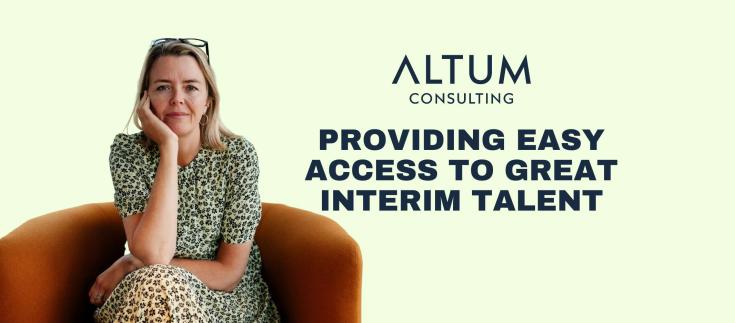Altum Consulting recently spoke to Matt Green, CFO of The Office Group to find out about his role, sector, the pandemic, and his predictions for the future.
What is your current role and company?
I am currently CFO of The Office Group (TOG) and have been for over 12 years now. TOG is one of the leading flexible office businesses in the UK and Europe, backed by Blackstone, the largest real estate investor in the world. The business is 19 years old, still, Founder led and has grown organically up until now. We currently have 52 buildings, predominantly in London, with an operation in Germany and regional locations in Bristol and Leeds.
We cater to everything from a freelancer who wants somewhere professional to work, all the way up to large organisations. Today our biggest client is BP who occupies a whole building with us.
What attracted you to the company and sector?
There were two things really. I had previously worked for a hedge fund which was something I had always wanted to get experience in, but I found it very intangible. It mainly involved analysing numbers on a spreadsheet… which might sound funny coming from a finance guy!
So, when I was looking for my next role, I really wanted to be part of an organisation where I could see and feel the business. The tangible nature of TOG’s business and the real estate sector really appealed. You can see it, feel it, and walk around it. The business is both the physical real estate and operation of the business, the combination is one of the things that make it interesting!
The second thing was the people and the leadership team at TOG. We are lucky to have a brilliant well-balanced culture and a business full of inspiring people. The Co-Founders of the business created an entrepreneurial, fun, ambitious, and warm environment that still very much exists today despite our growth.
How has the pandemic affected your company and sector?
The pandemic was one of the worst things that could happen to an office business!
In March 2020, when the Prime Minister asked everyone to work from home, we were fortunate in that we were trading well at a high occupancy which meant that the impact wasn’t felt straight away in our cash flow, unlike many other businesses. However, in the first 6 weeks of the pandemic a high number of clients came to us asking for help, discounts, rent free, and deferrals. Our approach was to be as helpful as possible to those in need in the hope that our generosity would serve us well with them in the future. Balancing this with the needs of our business and our people was certainly tough at times!
Things settled down after this initial phase, but occupancy levels did go down as some people and businesses came to the end of their agreements and chose not to renew. We own some of the buildings as well as lease them, so we are fortunate to have a strong balance sheet and a very supportive investor in Blackstone.
It was then mainly about managing the team as we all hit challenges from the pandemic at different times and in different ways. The demands were high on the finance team, there were lots of client discussions and debt issues that we had never really had before. Like everybody it was difficult to navigate and balance work and home life.
What trends do you see in the future?
The future of the sector is bright.
The serviced office sector started in the early 90s, born out of landlords having vacant space and not being able to let it floor by floor on a lease. So, they stuck up some partitions and let it on a more short-term basis to smaller companies and the sector evolved from there.
When I started working in the sector in 2009, it was still undeveloped compared to where it is now. It was only really adopted by small businesses or start-ups; it hadn’t yet become an acceptable form of tenure for larger businesses as part of the real estate strategy. Over the last five years that has totally changed.
Now the future of office space is flexible.
For example, Flex is currently 6% of the London office stock, which is roughly 250 million sqft. Most of the big agencies predict flex will grow to 20-30% of the overall office stock. If that is our addressable market (and I subscribe to that direction of travel) then even if we match the growth of the sector alone, we have to opportunity to quadruple the size of our business.
The growth of the sector is driven by the way occupiers want to work. Companies and their employees increasingly value the flexibility of tenure, a diverse amenity and wellness offer rich and solid ESG credentials. This is what we are trying to cater to.
What are your biggest challenges when hiring?
A consistent challenge is finding candidates that will thrive in our culture. We have certainly had challenges over the last couple of years finding the right talent – we’ve had a couple of people who on paper had the right skill set, but their personalities and ways of working weren’t suited to how we operate as a business. I would take someone slightly less experienced but with the right cultural fit over pure experience every time.
To partner with an agency like Altum Consulting that really understands the types of people that will thrive in our business is incredibly important. It also help that you are in one of the TOG office spaces, so you really get to experience the culture!
The pandemic put a pause on many people’s development as we all buckled down to get on with getting through what was immediately in front of us, which has presented another challenge when recruiting and retaining talent. We have noticed that as we come of the pandemic there is an accelerated focus on career progression. People that have been in a role for a short amount of time, already have their eye on the next role. It is difficult to keep up with this both internally and externally, as we want to attract people to our business and then we want them to stay for the long term.
What do you think are the key skills needed by a modern finance professional and has the pandemic altered these?
Adaptability is a key skill that people are going to need going forward. The pandemic has accelerated the need for this as it’s been such a volatile time with many changes in directions. It’s a skill I look for in my own finance team, and something we help develop. The core training & knowledge provided as part of professional accounting qualifications are as important as ever, despite how things have moved on.
Another thing that has changed is the role of data and technology in the finance function and having people skilled in areas beyond what is traditionally viewed as financial responsibility. This is something that is only going to get more important to help create competitive advantage, this is certainly a journey we at TOG are on ourselves. The ability to leverage technology beyond the pure finance function is going to be key to the success of modern finance professionals.
Thank you to Matt for participating in our spotlight interview! If you have any questions and would like to get in touch, please email Steve.Maynard@altumconsulting.co.uk.
Want to know more?

